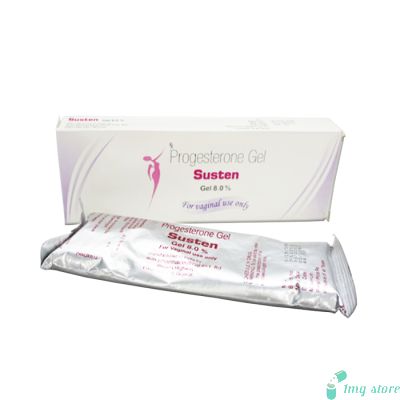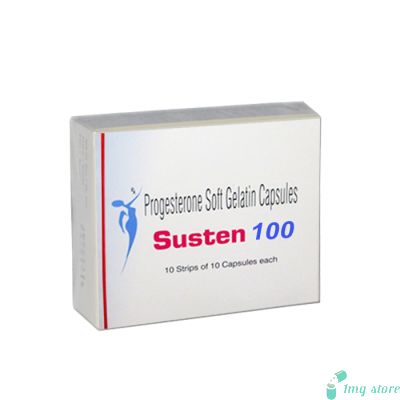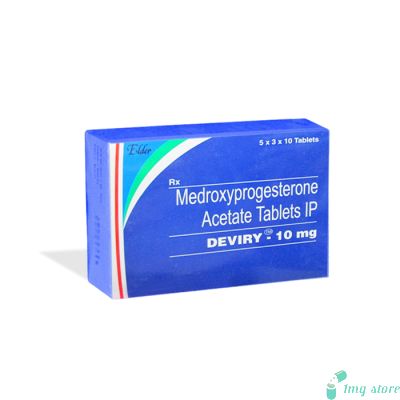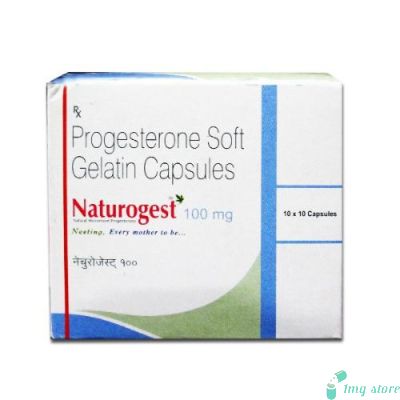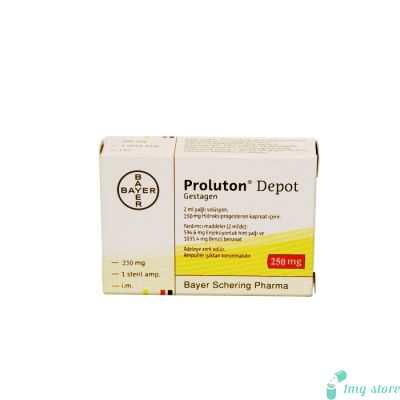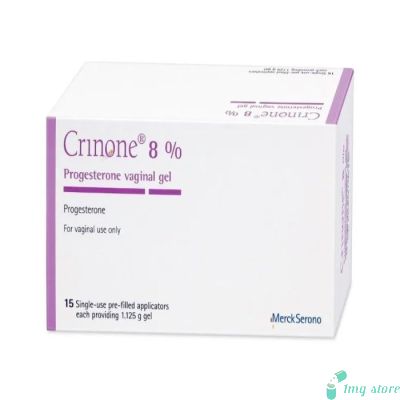Fostine Injection (Urofollitropin)
Urofollitropin injection, also known by its brand name Fostine, and Bravelle, is a medication used in reproductive medicine to stimulate the development of multiple eggs in women undergoing assisted reproductive techniques such as in vitro fertilization (IVF).
Introduction of Fostine Injection (Urofollitropin)
Urofollitropin injection, also known by its brand name Fostine, is a medication used in reproductive medicine to stimulate the development of multiple eggs in women undergoing assisted reproductive techniques such as in vitro fertilization (IVF). It is a purified form of follicle-stimulating hormone (FSH), which is responsible for the growth and maturation of ovarian follicles in females. Urofollitropin injection is administered through subcutaneous (under the skin) or intramuscular (into the muscle) injection and is typically prescribed by fertility specialists. Bravelle is another brand name for urofollitropin injection. It is essentially the same medication as Fostine, containing urofollitropin as the active ingredient. Bravelle is also used for ovarian stimulation in assisted reproductive techniques such as IVF. The dosage and administration of Bravelle are similar to Fostine, and the drug is available in a powdered form that needs to be reconstituted before injection.
Dosage Information:
The dosage of urofollitropin injection varies depending on individual patient characteristics and the specific treatment protocol established by the healthcare provider. The medication is available in vials containing a powdered form of the drug, which needs to be reconstituted with a sterile diluent before administration.
The recommended starting dose of urofollitropin injection is usually determined based on the patient's age, weight, and ovarian reserve. The dosage may be adjusted throughout the treatment cycle based on the response of the ovaries, as monitored through ultrasound examinations and hormone level measurements. It is crucial to follow the dosage instructions provided by the healthcare professional and to adhere to the prescribed schedule for the injections.
Urofollitropin Injection for IVF:
Urofollitropin injection is commonly used in IVF treatment protocols to stimulate the development of multiple eggs. During an IVF cycle, urofollitropin is administered to the patient over a specific period of time, typically in combination with other medications that regulate the hormonal environment and support follicular growth. The aim is to achieve a sufficient number of mature eggs that can be retrieved and fertilized in the laboratory for subsequent embryo transfer. The dosage and timing of urofollitropin injections will be determined by the fertility specialist based on individual patient factors and treatment goals.
Urofollitropin injection plays a crucial role in the field of women's care, particularly in the management of female infertility. Female infertility refers to the inability to conceive or carry a pregnancy to term. There are various causes of Female Infertility, including hormonal imbalances, ovulatory disorders, structural abnormalities, or age-related factors. Urofollitropin injection is commonly used as part of fertility treatments to address these underlying causes.
In cases where hormonal imbalances or ovulatory disorders are identified, urofollitropin injection is used to stimulate the ovaries and promote the development of multiple mature eggs. This enables the chances of successful fertilization and pregnancy. It is often combined with other medications, such as GnRH agonists or antagonists, to optimize the timing and effectiveness of the treatment.
Urofollitropin injection is also used in women with polycystic ovary syndrome (PCOS), a common hormonal disorder associated with female infertility. PCOS is characterized by the presence of multiple small cysts on the ovaries and hormonal imbalances that affect ovulation. Urofollitropin injection helps regulate the menstrual cycle and stimulate the growth of healthy follicles, improving the chances of ovulation and successful conception.
In addition to medication, Women's care for infertility may involve other interventions such as surgical procedures, lifestyle modifications, or assisted reproductive techniques like IVF. It is essential for women facing infertility to receive comprehensive care that addresses the specific causes of infertility and provides support throughout the treatment journey.
Find the best product at 1mgstore.com your most reliable pharmacy. CheckUrofollitropin injection availability on our website and Urofollitropin injection price for quick and fast delivery at your doorsteps.
When using urofollitropin injection (Fostine/Bravelle), it is important to follow certain precautions
- Medical history evaluation: Before starting urofollitropin injection, your healthcare provider will assess your medical history, including any previous allergic reactions to medications, hormonal disorders, or ovarian cysts. It is essential to inform your healthcare provider about any existing medical conditions or medications you are currently taking.
- Ovarian sensitivity: Some women may be more sensitive to the effects of urofollitropin injection, which can increase the risk of ovarian hyperstimulation syndrome (OHSS). OHSS is a potentially serious condition characterized by enlarged ovaries and fluid accumulation in the abdomen. It is important to closely monitor ovarian response during treatment and report any symptoms such as abdominal pain, bloating, or weight gain to your healthcare provider.
- Multiple pregnancies: Urofollitropin injection can increase the chances of multiple pregnancies, such as twins or triplets. Multiple pregnancies carry higher risks for both the mother and the babies. Your healthcare provider will monitor the number and size of developing follicles to minimize the risk of multiple pregnancies while maximizing the chances of success.
- Ectopic pregnancy: Urofollitropin injection does not increase the risk of ectopic pregnancy (when the fertilized egg implants outside the uterus) but it is important to be aware of the signs and symptoms. If you experience severe pelvic pain, vaginal bleeding, or dizziness, seek immediate medical attention as these may indicate an ectopic pregnancy.
- Emotional well-being: Fertility treatments can be emotionally challenging. It is important to take care of your emotional well-being and seek support from your partner, friends, or a counselor if needed. Connecting with support groups or online communities of women going through similar experiences can also provide valuable support.
Important Utilization of Urofollitropin Injection/Bravelle:
- In vitro fertilization (IVF): Urofollitropin injection is primarily used in IVF procedures to stimulate the ovaries to produce multiple mature eggs. By increasing the number of eggs available for retrieval, the chances of successful fertilization and implantation are improved.
- Controlled ovarian stimulation (COS): Urofollitropin injection is also used in controlled ovarian stimulation protocols for other assisted reproductive techniques, such as intracytoplasmic sperm injection (ICSI) and intrauterine insemination (IUI). It helps in optimizing the chances of achieving pregnancy by stimulating the growth and development of multiple follicles.
- Ovulation induction: In some cases, urofollitropin injection may be used to induce ovulation in women who are not ovulating regularly or who have irregular menstrual cycles. By promoting the growth of mature follicles, urofollitropin helps trigger ovulation and increase the likelihood of successful conception.
- Polycystic ovary syndrome (PCOS): Women with PCOS, a condition characterized by hormonal imbalances and irregular ovulation, may benefit from urofollitropin injection. It can help regulate the menstrual cycle and stimulate the development of healthy follicles.
- Research purposes: Urofollitropin injection is also used in clinical research studies to investigate various aspects of fertility treatments and reproductive medicine. These studies aim to improve the understanding of infertility causes and develop more effective treatment options.
Some of the secondary effects of Fostine Injection (Urofollitropin)
Like any medication, urofollitropin injection can cause side effects. While not everyone experiences these side effects, it is important to be aware of them. Common side effects of urofollitropin injection include:
- Injection site reactions: Mild redness, itching, or pain at the injection site is common. These symptoms are usually temporary and resolve on their own.
- Ovarian hyperstimulation syndrome (OHSS): OHSS can occur as a result of excessive response to urofollitropin injection. Symptoms include abdominal bloating, pelvic pain, nausea, vomiting, and shortness of breath. Severe OHSS requires immediate medical attention.
- Ovarian cysts: Urofollitropin injection/Bravelle can occasionally lead to the development of ovarian cysts. Most of these cysts are benign and resolve on their own. However, if a cyst becomes large or causes persistent pain, further evaluation may be necessary.
- Mood swings: Hormonal medications can sometimes affect mood and emotional well-being. Some women may experience mood swings, irritability, or emotional sensitivity during urofollitropin treatment.
- Allergic reactions: While rare, allergic reactions to urofollitropin injection can occur. Signs of an allergic reaction may include rash, itching, swelling, dizziness, or difficulty breathing. Seek immediate medical attention if you experience any of these symptoms.
Some of the concerns you may have about the Fostine Injection (Urofollitropin)
Can urofollitropin injection be self-administered at home?
Yes, urofollitropin injection can be self-administered at home after receiving proper instructions from a healthcare professional. It is important to follow the instructions regarding dosage, injection technique, and storage of the medication. Regular monitoring and communication with your healthcare provider are necessary to ensure the appropriate response of the ovaries and adjust the dosage if needed.
How long does it take for urofollitropin injection/Bravelle to stimulate follicle growth?
The time required for follicle growth can vary among individuals and depends on factors such as age, ovarian reserve, and treatment protocol. Typically, urofollitropin injection is administered over a period of 10 to 12 days. During this time, regular ultrasound examinations and hormone level measurements are conducted to monitor the growth and development of the follicles. The healthcare provider will determine the optimal timing for triggering ovulation based on the follicular response.
What are the chances of success with urofollitropin injection in IVF?
The success rates of IVF treatment with urofollitropin injection vary depending on several factors, including the age of the woman, the cause of infertility, and the overall health of the couple. Generally, success rates are higher in younger women with a good ovarian reserve. It is important to have realistic expectations and understand that IVF success is not guaranteed. Your healthcare provider will provide personalized information regarding your specific situation and discuss the chances of success based on your individual circumstances.
Can urofollitropin injection be used in women with diminished ovarian reserve?
Yes, urofollitropin injection can be used in women with diminished ovarian reserve. Diminished ovarian reserve refers to a reduced number or quality of eggs in the ovaries, which can affect fertility. Urofollitropin injection helps stimulate the growth and development of follicles, increasing the chances of obtaining mature eggs for fertilization. However, the response to treatment may vary, and success rates may be lower compared to women with a normal ovarian reserve. It is important to discuss your specific situation with your healthcare provider for personalized guidance.
Are there any alternatives to urofollitropin injection for ovarian stimulation?
Yes, there are alternative medications and protocols for ovarian stimulation in assisted reproductive techniques. Some commonly used alternatives include recombinant FSH (rFSH) medications and clomiphene citrate. Each medication or protocol has its own advantages and considerations, and the choice depends on factors such as the individual's medical history, age, and specific fertility diagnosis. Your healthcare provider will determine the most suitable option for you and discuss the potential risks, benefits, and success rates of the alternatives.
Some of the notable Drug interactions to be aware of include:
Before starting urofollitropin injection, inform your healthcare provider about all medications, supplements, or herbal remedies you are currently taking. Certain medications may interact with urofollitropin and affect its effectiveness or increase the risk of side effects.
Gonadotropin-releasing hormone (GnRH) agonists or antagonists: These medications are often used in combination with urofollitropin injection to regulate ovulation and prevent premature ovulation. Your healthcare provider will carefully coordinate the timing and dosing of these medications to maximize the effectiveness of the treatment.
Clomiphene citrate: Clomiphene citrate is another medication used for ovarian stimulation. When combined with urofollitropin injection, the dosage and timing of both medications may need to be adjusted to optimize the response of the ovaries.
Medications affecting blood clotting: Urofollitropin injection/Bravelle may increase the risk of blood clot formation. Inform your healthcare provider if you are taking any medications that affect blood clotting, such as anticoagulants or antiplatelet drugs.
| Manufacturer | : | Bayer Pharma, India |
| Equivalent Brand | : | Bravelle |
| Generic Search | : | Urofollitropin |









